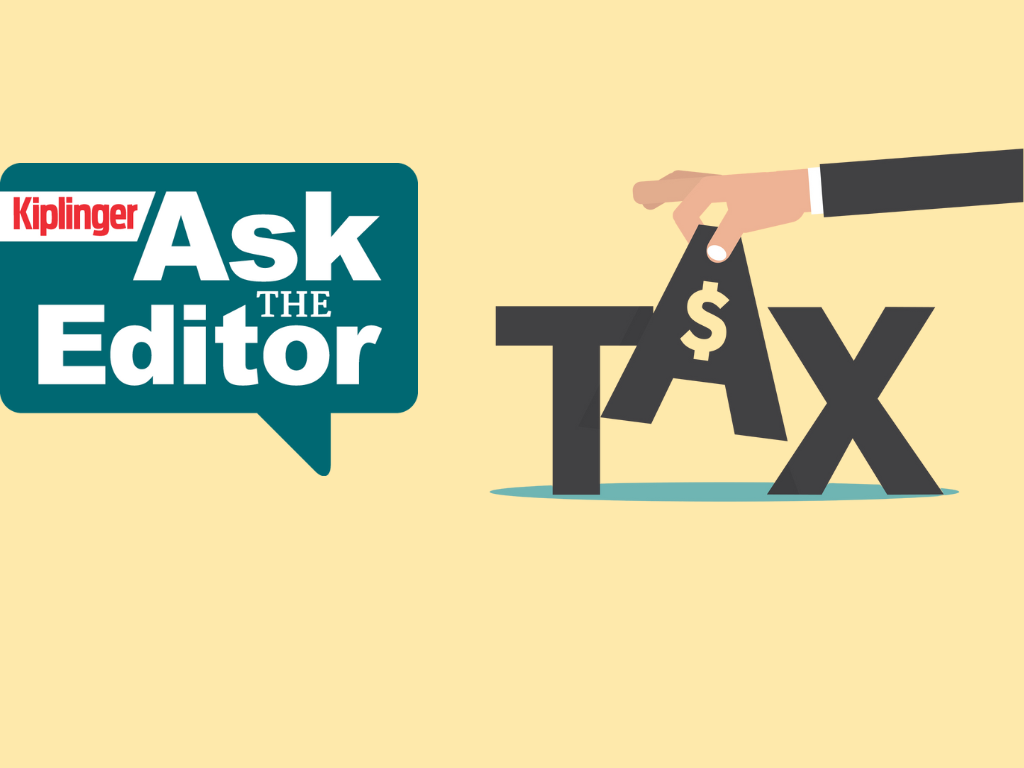New Jersey 'Senior Freeze' in 2026: How to Check Your Payment Status
Looking for your New Jersey property tax reimbursement? Here is the latest 2026 "Senior Tax Freeze" payment schedule and how to track your check through the NJ Division of Taxation.


Profit and prosper with the best of Kiplinger's advice on investing, taxes, retirement, personal finance and much more. Delivered daily. Enter your email in the box and click Sign Me Up.
You are now subscribed
Your newsletter sign-up was successful
Want to add more newsletters?

Delivered daily
Kiplinger Today
Profit and prosper with the best of Kiplinger's advice on investing, taxes, retirement, personal finance and much more delivered daily. Smart money moves start here.

Sent five days a week
Kiplinger A Step Ahead
Get practical help to make better financial decisions in your everyday life, from spending to savings on top deals.

Delivered daily
Kiplinger Closing Bell
Get today's biggest financial and investing headlines delivered to your inbox every day the U.S. stock market is open.

Sent twice a week
Kiplinger Adviser Intel
Financial pros across the country share best practices and fresh tactics to preserve and grow your wealth.

Delivered weekly
Kiplinger Tax Tips
Trim your federal and state tax bills with practical tax-planning and tax-cutting strategies.

Sent twice a week
Kiplinger Retirement Tips
Your twice-a-week guide to planning and enjoying a financially secure and richly rewarding retirement

Sent bimonthly.
Kiplinger Adviser Angle
Insights for advisers, wealth managers and other financial professionals.

Sent twice a week
Kiplinger Investing Weekly
Your twice-a-week roundup of promising stocks, funds, companies and industries you should consider, ones you should avoid, and why.

Sent weekly for six weeks
Kiplinger Invest for Retirement
Your step-by-step six-part series on how to invest for retirement, from devising a successful strategy to exactly which investments to choose.
New Jersey has issued millions in checks for its “Senior Freeze” property tax program in recent years — and that’s just the beginning. The Garden State has recently announced that this year's application process for the program is already underway. This could provide relief for older adult residents who live in one of the most expensive states for homeownership.
Let’s take a look at this program to see when you might expect your payment.
Related: Some New Jersey residents may be getting money soon. The state has enacted a new property tax relief program called "Stay NJ." Eligible homeowners could receive thousands of dollars in the form of a rebate on their property taxes.
From just $107.88 $24.99 for Kiplinger Personal Finance
Become a smarter, better informed investor. Subscribe from just $107.88 $24.99, plus get up to 4 Special Issues

Sign up for Kiplinger’s Free Newsletters
Profit and prosper with the best of expert advice on investing, taxes, retirement, personal finance and more - straight to your e-mail.
Profit and prosper with the best of expert advice - straight to your e-mail.
What is the New Jersey 'Senior Property Tax Freeze' program?
Despite its name, the “Senior Freeze” program does not actually “freeze” your property taxes. Rather, the program reimburses eligible New Jersey residents for any property tax increases once they're enrolled. The program accomplishes this by locking your property tax in the year you enroll.
When will New Jersey 'Senior Freeze' checks be mailed?
Here is when you can expect your "Senior Freeze NJ" check in the mail, according to the New Jersey Division of Taxation:
When you filed your application | When you may expect your payment |
|---|---|
Before May 1 | As soon as July 15, 2026 |
May 1 - June 1 | As early as September 1, 2026 |
June 2 - Sept. 1 | As early as November 2, 2026 |
Sept. 2 - Oct. 31 | As early as December 1, 2026 |
NJ 'Senior Freeze' status
There are two ways to check the status of your New Jersey "Senior Freeze" Property Tax Reimbursement application:
- Visit the state Department of Treasury's online portal to check the status of your application.
- Call the state's "Senior Freeze" dedicated hotline at 1-800-882-6597.
You can also call the number to learn more about how the program calculates payment.
NJ 'Senior Freeze' application
Applicants can file online, or applications may be sent by postal service.
The new process for applying to New Jersey’s "Senior Freeze" program is to fill out a “PAS-1” application. This replaces the separate applications for “Senior Freeze” and NJ ANCHOR programs from earlier years. You can also apply for the new Stay NJ program on the PAS-1.
New Jersey’s Taxation Division has issued instructions for how many residents will apply for property tax relief programs moving forward:
- The state will mail out application information for PAS-1 in early 2026 to eligible recipients of the "Senior Freeze."
- Applicants can fill out a single "PAS-1" application for all property tax relief (ANCHOR, "Senior Freeze," Stay NJ).
- The deadline to apply for PAS-1 is November 2, 2026. However, the sooner you apply, the sooner you may receive your payment.
NJ 'Senior Tax Freeze' program: Eligibility
You are eligible for the Senior Freeze if you are 65 or older as of the end of the prior tax year, or on Social Security disability payments as of the end of last year.
Only property taxes for a primary residence or mobile home park site fees are included in the tax break program.
Additional eligibility requirements are as follows:
- You must be a New Jersey resident.
- You must own and live in your home or mobile home since at least December 31, 2021.
- Your total annual income must have been $168,268 or less for 2024, and $172,475 or less for 2025.
Starting last year, "Senior Freeze" recipients no longer need to supply proof that they paid property taxes with their application.
For purposes of this program, your "income" includes taxable pension and annuity payment amounts, including IRA withdrawals and all unemployment benefits you receive. Some exclusions or other income limits may apply.
What is excluded from the NJ tax relief program?
There are several exclusions to the Senior Freeze.
- For example, vacation homes and secondary homes are not eligible for reimbursement.
- Additionally, the property you rent from someone else doesn’t qualify for this program.
- Property with a commercial unit on it or property with more than four units may also be ineligible.
For more eligibility information, visit the New Jersey Division of Taxation website.
More on New Jersey
Profit and prosper with the best of Kiplinger's advice on investing, taxes, retirement, personal finance and much more. Delivered daily. Enter your email in the box and click Sign Me Up.

Kate is a CPA with experience in audit and technology. As a Tax Writer at Kiplinger, Kate believes that tax and finance news should meet people where they are today, across cultural, educational, and disciplinary backgrounds.
-
 5 Ronald Reagan Quotes Retirees Should Live By
5 Ronald Reagan Quotes Retirees Should Live ByThe Nation's 40th President's wit and wisdom can help retirees navigate their financial and personal journey with confidence.
-
 How to Use 1031 Exchanges to Build Your Real Estate Empire
How to Use 1031 Exchanges to Build Your Real Estate EmpireSmall rental properties can be excellent investments, but you can use 1031 exchanges to transition to commercial real estate for bigger wealth-building.
-
 Where's the Best Place to Save for a House Down Payment?
Where's the Best Place to Save for a House Down Payment?Learn how timing matters when it comes to choosing the right account.
-
 I'm a Real Estate Investing Pro: This Is How to Use 1031 Exchanges to Scale Up Your Real Estate Empire
I'm a Real Estate Investing Pro: This Is How to Use 1031 Exchanges to Scale Up Your Real Estate EmpireSmall rental properties can be excellent investments, but you can use 1031 exchanges to transition to commercial real estate for bigger wealth-building.
-
 Ask the Editor, February 13: More Questions on IRAs
Ask the Editor, February 13: More Questions on IRAsAsk the Editor In this week's Ask the Editor Q&A, Joy Taylor answers questions on IRAs
-
 For More Flexible Giving, Consider Combining a Charitable Remainder Trust With a Donor-Advised Fund
For More Flexible Giving, Consider Combining a Charitable Remainder Trust With a Donor-Advised FundIf a charitable remainder trust puts too many constraints on your family's charitable giving, consider combining it with a donor-advised fund for more control.
-
 The Illinois 'Cliff Tax': A Single Dollar Could Cost Families Hundreds of Thousands
The Illinois 'Cliff Tax': A Single Dollar Could Cost Families Hundreds of ThousandsIllinois' estate tax "threshold" (rather than "exemption") can surprise families, but proactive planning can help preserve more for heirs and charitable causes.
-
 How to Open Your Kid's $1,000 Trump Account
How to Open Your Kid's $1,000 Trump AccountTax Breaks Filing income taxes in 2026? You won't want to miss Form 4547 to claim a $1,000 Trump Account for your child.
-
 In Arkansas and Illinois, Groceries Just Got Cheaper, But Not By Much
In Arkansas and Illinois, Groceries Just Got Cheaper, But Not By MuchFood Prices Arkansas and Illinois are the most recent states to repeal sales tax on groceries. Will it really help shoppers with their food bills?
-
 These Thoughtful Retirement Planning Steps Help Protect the Life You Want in Retirement
These Thoughtful Retirement Planning Steps Help Protect the Life You Want in RetirementThis kind of planning focuses on the intentional design of your estate, philanthropy and long-term care protection.
-
 7 Bad Tax Habits to Kick Right Now
7 Bad Tax Habits to Kick Right NowTax Tips Ditch these seven common habits to sidestep IRS red flags for a smoother, faster 2026 income tax filing.